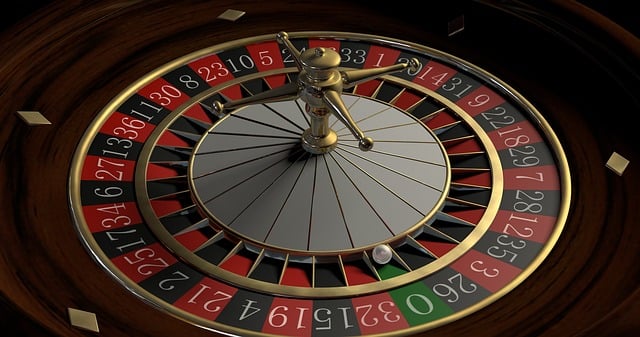The EU's gambling market is a diverse but regulated space with 27 member states having distinct legal frameworks, while EU directives set minimum standards for licensing, player protection, and consumer rights. Key focus areas of Gambling Laws EU include online operator monitoring, age restrictions, responsible gaming promotion, and secure player environments, adapting to technological progress to prevent illegal activities and protect vulnerable individuals. Businesses operating within the EU must navigate this complex landscape by understanding national laws, licensing requirements, taxation obligations, and consumer protection measures while staying updated on regulatory shifts. Future developments aim at harmonization for a unified market, addressing problem gambling and consumer protection concerns through cooperation, shared best practices, and consistent standards among member states.
Gambling laws EU have evolved significantly, shaping a complex yet dynamic market across the region. Understanding this legal landscape is crucial for businesses aiming to navigate and thrive. This article delves into the intricacies of the EU gambling market and its stringent regulations. We explore practical strategies for compliance, analyzing the legal framework and its implications. Additionally, we provide insights into the future direction of gambling laws in the European Union, shedding light on potential changes and opportunities.
- Understanding the EU Gambling Market and Its Regulation
- Strategies for Compliance: Navigating the Legal Landscape
- The Future of Gambling Laws in the European Union
Understanding the EU Gambling Market and Its Regulation

The European Union (EU) gambling market is a dynamic and diverse landscape, comprising 27 member states with their own unique legal frameworks and regulatory bodies. Understanding this intricate web of gambling laws EU is essential for businesses and individuals navigating the industry. Each country has its own set of rules regarding licensing, gaming types permitted, player protection, and tax implications, making it a complex environment to operate in. Despite these variations, the EU has established a unified legal framework through directives that set minimum standards across member states, ensuring fair competition and consumer protection.
This regulatory framework is designed to balance the promotion of economic growth and job creation within the gambling sector while safeguarding vulnerable individuals and preventing illegal activities. The gambling laws EU focus on licensing and monitoring online gambling operators, setting age restrictions, promoting responsible gaming practices, and providing a safe and secure environment for players. With the rapid growth of online gambling, the EU has been proactive in updating its regulations to keep pace with technological advancements while ensuring the integrity and sustainability of the market.
Strategies for Compliance: Navigating the Legal Landscape

Navigating the complex landscape of Gambling Laws EU is essential for any business looking to operate within this jurisdiction. The European Union has a unified approach to gambling regulation, with each member state implementing its own legislation under the overarching framework set by EU directives. This creates a diverse yet structured environment where compliance strategies must be tailored to specific national laws while adhering to common EU standards.
To ensure compliance, operators must thoroughly understand the applicable laws in the countries they target. This involves a deep dive into licensing requirements, game permissions, taxation obligations, and consumer protection measures. Regular updates on regulatory changes are crucial, as the Gambling Laws EU evolve with technological advancements and shifting societal attitudes. Effective compliance strategies involve establishing robust internal procedures, investing in legal expertise, and fostering transparent relationships with regulators to stay ahead of the curve.
The Future of Gambling Laws in the European Union

The future of gambling laws in the European Union is an exciting and rapidly evolving landscape. With advancements in technology and a growing online gaming industry, the EU is facing new challenges and opportunities to regulate this dynamic sector effectively. The current regulatory framework, characterized by a patchwork of national laws, is being scrutinized for its ability to keep pace with the digital age. Many member states are taking steps towards harmonization, aiming to create a unified market while addressing concerns related to problem gambling and consumer protection.
The EU’s approach to gambling legislation is shifting towards a more comprehensive, cross-border strategy. This involves enhancing cooperation between member states, sharing best practices, and establishing consistent standards. The goal is to provide a seamless gaming experience for European citizens while ensuring fairness, transparency, and accountability in the online gambling space. As technology continues to shape the industry, the Gambling Laws EU must adapt, fostering innovation while protecting vulnerable individuals and maintaining the integrity of the market.
The evolving landscape of gambling laws within the EU presents both challenges and opportunities. Understanding the intricate web of regulations, as outlined in this article, is crucial for operators aiming to navigate this dynamic market effectively. By embracing strategic compliance approaches, businesses can ensure they remain competitive while adhering to the stringent standards set forth by European legislation. As the EU gambling sector continues to transform, staying informed about upcoming changes will be vital to long-term success.






